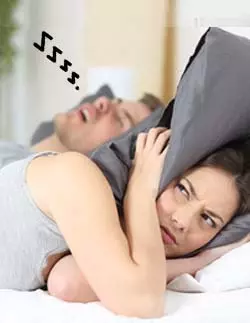Snoring is a common condition that can disrupt sleep quality. While many individuals snore occasionally, chronic snoring might point to underlying issues that require attention and a visit to a snoring specialist. Identifying the root causes of snoring is key to addressing it effectively. Let’s explore the various factors contributing to snoring and helpful methods to pinpoint its causes.
Identifying the Root Cause of Snoring
Understanding why snoring occurs involves investigation and observation. Methods to assess and identify the underlying causes can range from personal assessments to professional evaluations.
Self-Assessment
Begin by evaluating patterns and habits related to your snoring. Determine whether certain sleep positions worsen it or if lifestyle choices, such as alcohol consumption, may contribute. Maintaining a sleep journal that tracks the frequency, volume, and timing of snoring episodes also helps provide valuable insights. Take note of any accompanying symptoms, like fatigue or headaches, as they might indicate conditions like sleep apnea.
Observation
Having someone observe your sleep is a helpful way to gain perspective on your snoring. A partner or family member may note specific behavioral triggers, such as snoring that changes with sleep position or moments where breathing is paused. These observations provide clues about possible airway obstructions or signs of sleep apnea.
Medical Evaluation
When self-assessment and observation alone do not clarify the cause, a medical evaluation may be helpful. Healthcare professionals, including a snoring specialist, can conduct thorough assessments to identify what leads to snoring. Various diagnostic methods, such as sleep studies, enable professionals to evaluate your airways and sleep patterns comprehensively.
The answers to these, combined with a comprehensive evaluation, help direct you to appropriate solutions.
Factors Contributing to Snoring
Snoring occurs due to vibrations in the throat as air flows through narrow or obstructed passages. Here are some factors that contribute to snoring:
- Anatomy-Related Causes: Physical features often play a fundamental role in snoring. A narrow airway, enlarged tonsils, or a large tongue can obstruct airflow, leading to vibrations and snoring. Structural issues in the nose or throat may also restrict breathing during sleep.
- Muscle Relaxation: During sleep, the muscles in the throat and soft palate naturally relax. For some individuals, these muscles can relax excessively, collapsing and creating partial blockages within the airway. This relaxed state increases the likelihood of vibrations when air moves through the narrowed space, leading to snoring.
- Nasal Congestion: Nasal congestion may arise from chronic allergies, sinus problems, or infections. When nasal airflow is restricted, individuals often breathe through the mouth, exacerbating snoring.
- Lifestyle Influences: Certain lifestyle factors can make snoring worse. Alcohol consumption before bed relaxes throat muscles further, while sleeping on the back causes gravity to narrow the airway. Obesity is another reliable predictor, as excess fat around the throat can contribute to airway collapse during sleep.
- Other Contributing Factors: Medications that relax muscles can increase the likelihood of snoring. Medical conditions like sleep apnea or aging-related changes may also lead to snoring. These conditions may alter muscle tone in the throat and soft palate, narrowing airways over time.
Addressing these factors through lifestyle changes or medical interventions may significantly reduce snoring.
Consult a Snoring Specialist Today
Snoring is commonly associated with numerous factors, ranging from physical anatomy to lifestyle influences. Identifying its specific cause requires careful observation and evaluation, whether through self-assessment, involving an observer, or seeking professional guidance. If snoring remains persistent or disruptive, consult a snoring specialist for professional insights.

